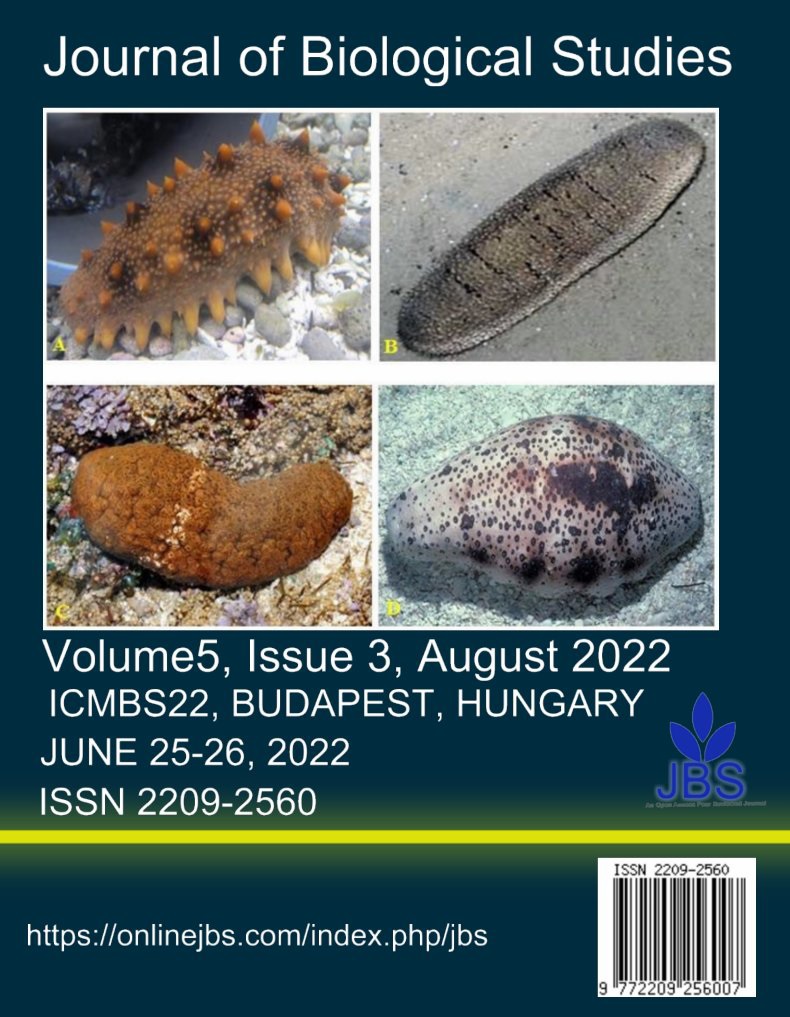Anti-proliferative effects of Rhamnus frangula miller leaf and bark extracts on HEK293 and MCF-7 cell lines and evaluation of Bax and Bcl-2 genes expression level in MCF-7 cells
Main Article Content
Abstract
Rhamnus frangula extracts may have anti-proliferative effects on cancer development. This study was exerted to determine the effects of Rhamnus frangula Miller leaf and bark extracts on the viability of MCF-7 cells compared with HEK293 cells and the evaluation of Bax and Bcl-2 gene expression levels in MCF-7 cells. The cell lines were randomly divided into the control group (not exposed to extract) and groups exposed to 0.001, 0.01, 0.1, and 1 mg/ml of Rhamnus frangula leaf and bark extracts. Cell viability was quantified by MTT assay. The expression of Bax and Bcl-2 genes was evaluated by quantitative Real-time PCR analysis. Statistical analysis was performed using ANOVA. HEK293 cells viability significantly increased in groups exposed to 0.001 and 0.01 mg/ml and decreased in group exposed to 1 mg/ml of Rhamnus frangula leaf extract compared to control group (P < 0.01, P < 0.05 and P < 0.01, respectively). Exposure of MCF-7 cells to 0.01, 0.1 and 1 mg/ml of leaf extract led to significant decrease in cell viability (P < 0.05). Exposure of HEK293 cells to 1 mg/ml and of MCF-7 cells to 0.1 and 1 mg/ml of Rhamnus frangula bark extract resulted in significant decrease in cell viability compared to control group (P < 0.01, P < 0.05 and P < 0.01, respectively). The cytotoxic effect of leaf was higher than bark extract on MCF7 cells. 1 mg/ml of leaf and bark extracts significantly increased the expression level of pro-apoptotic Bax and decreased anti-apoptotic Bcl-2 genes in MCF-7 cells (P < 0.01). However, the expression level of the Bax gene was significantly higher in a group exposed to 1 mg/ ml of leaf compared to bark extract (P < 0.01). Despite bark, lower leaf extract concentrations inhibit breast cancer (MCF-7) cells proliferation while having no cytotoxic effects on non-cancerous HEK293 cells. Therefore, using leaf is more appropriate than bark extract to fight against breast cancer cells. We have also shown that Rhamnus frangula leaf and bark extracts mechanism of action has occurred through Bax-dependent apoptotic pathway on breast cancer cell line.
Article Details

This work is licensed under a Creative Commons Attribution 4.0 International License.
